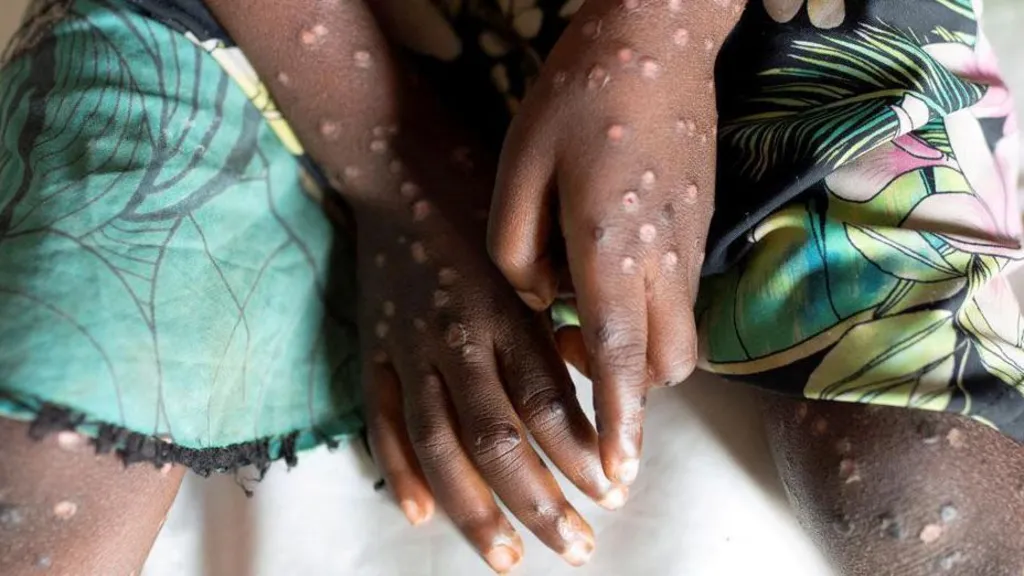
Mpox causes flu-like symptoms and a distinctive rash
Travellers should consider getting vaccinated against mpox if they will be visting affected areas in Africa, new advice says.
The European Centre for Disease Prevention and Control (ECDC) has updated its recommendations in response to outbreaks of a new strain of the virus. Other continents, including Europe, can expect some cases too, it says.
ECDC says the risk of it spreading everywhere is low, despite the World Health Organization recently declaring the mpox situation a global emergency.
The disease – formerly known as monkeypox – can be passed on by close contact with anyone with the infection.
Those who have been vaccinated against mpox in the past might only need one-top up dose, rather than two shots.
Booster vaccine doses are typically recommended every two to 10 years if a person remains at continued risk for exposure.
Mpox has killed at least 450 people in the DRC in recent months, linked to a new type or Clade called 1b.
What’s known about mpox
Mpox can be passed on from person to person through:
- any close physical contact with mpox blisters or scabs (including during sexual contact, kissing, cuddling or holding hands)
- touching clothing, bedding or towels used by someone with mpox
- the coughs or sneezes of a person with mpox when they’re close to you
It causes flu-like symptoms, skin lesions and can be fatal for some.
Experts say there is still a lot to learn about 1b, but it may be spreading more easily, causing more serious disease.
Pamela Rendi-Wagner from the ECDC said: “As a result of the rapid spread of this outbreak in Africa, ECDC has increasd the level of risk for the general population in the EU/EEA and travellers to affected areas. Due to the close links between Europe and Africa we must be prepared for more imported Clade 1 cases.”
Currently, there are no cases of Clade 1b mpox confirmed in the UK but experts say cases can spread if international action is not taken.
A case of mpox has also been detected in Sweden after a person became infected during a stay in an area of Africa where the disease is spreading.
The ECDC recommends that public health authorities plan and prepare for quick detection of any more cases that may reach Europe.
A previous mpox public health emergency, declared in 2022, was caused by a different, milder strain called Clade 2.
Despite having effective vaccines against mpox, too few doses are currently getting to where they are needed most.